In today's rapidly changing business environment, having a comprehensive business continuity plan is more crucial than ever. It's not just about preparing for the unexpected; it's about ensuring that your operations can withstand disruptions and continue to serve your customers efficiently. Regular reviews of your plan are essential to keep it effective and aligned with your organization's goals. So, let's dive into the key steps for evaluating and enhancing your business continuity strategies!

Objective and Scope of Review
The business continuity plan (BCP) review aims to assess the effectiveness and relevance of strategies in place for mitigating risks such as natural disasters, cyberattacks, or operational disruptions. The scope includes evaluating key components such as risk assessment procedures, recovery time objectives (RTO), and recovery point objectives (RPO). The review will focus on disaster recovery processes specific to critical departments, like IT and Operations, examining protocols established since the last update in January 2023. It will involve stakeholder interviews, testing of emergency communication systems, and a thorough audit of resource allocation, ensuring alignment with industry standards and regulatory requirements. The ultimate goal is to enhance organizational resilience and ensure minimal downtime during unforeseen events.
Key Stakeholder Involvement
Key stakeholder involvement is crucial in the review process of a business continuity plan (BCP) to ensure comprehensive preparedness. Identifying key stakeholders such as department heads (e.g., IT director, operations manager) and external partners (e.g., local emergency services, critical suppliers) fosters a collaborative environment. Engaging these individuals allows for insights into potential vulnerabilities unique to specific areas of the organization. Regular workshops and feedback sessions scheduled quarterly (or as necessary) facilitate continuous improvement and adaptation of the BCP. Notably, documenting stakeholder contributions and incorporating their perspectives enhances the robustness of the plan and reinforces organizational resilience against disruptive events.
Timeline and Milestones
The business continuity plan review process is structured into a series of critical timelines and milestones to ensure comprehensive evaluation and effectiveness. The initial assessment phase spans 2 weeks, where key stakeholders from departments such as Risk Management and IT Operations analyze existing documentation, focusing on the plan's alignment with current operational challenges. Following this, a collaborative workshop scheduled for the 3rd week engages cross-functional teams in identifying potential gaps and required updates. The development of a revised draft is targeted for completion by the end of the 4th week, incorporating feedback gathered during the workshop. Subsequently, a 2-week window is allocated for second-round reviews and further refinements, ensuring stakeholder satisfaction and compliance with regulatory standards. The finalized business continuity plan is slated for approval by executive leadership in the 7th week, followed by dissemination and training sessions in week 8, aimed at enhancing organizational resilience and preparedness against potential disruptions.
Risk Assessment Findings
A comprehensive business continuity plan review identifies critical vulnerabilities within operational strategies. For instance, risk assessment findings reveal that 60% of key processes at the corporate headquarters (specific location) remain susceptible to disruptions from natural disasters, cyberattacks, or supply chain failures. Identifying these risks involves examining historical data, such as the 2017 hurricane impact on regional operations, which resulted in a 30% loss of productivity. Additionally, staff training remains a concern, with only 45% of employees familiar with emergency procedures, highlighting the need for enhanced training programs. Addressing these findings is essential to ensure resilience against potential threats that could jeopardize business functions.
Recommendations and Action Items
The business continuity plan (BCP) review outlines essential recommendations and actionable items to enhance organizational resilience against potential disruptions. Key highlights include updating risk assessment protocols, ensuring alignment with industry standards (such as ISO 22301), and incorporating scenario-based training exercises for employees at all locations. Regularly scheduled audits (quarterly or biannual) are recommended to evaluate plan effectiveness and compliance. Additionally, establishing a clear communication strategy is crucial for informing stakeholders during a crisis, with designated roles for crisis management teams. Implementing comprehensive data backup solutions (inclusive of off-site storage and cloud technology) will safeguard critical information. Lastly, engaging with relevant third-party vendors (such as recovery service providers) ensures timely support during emergencies, fostering a proactive rather than reactive approach to business continuity.

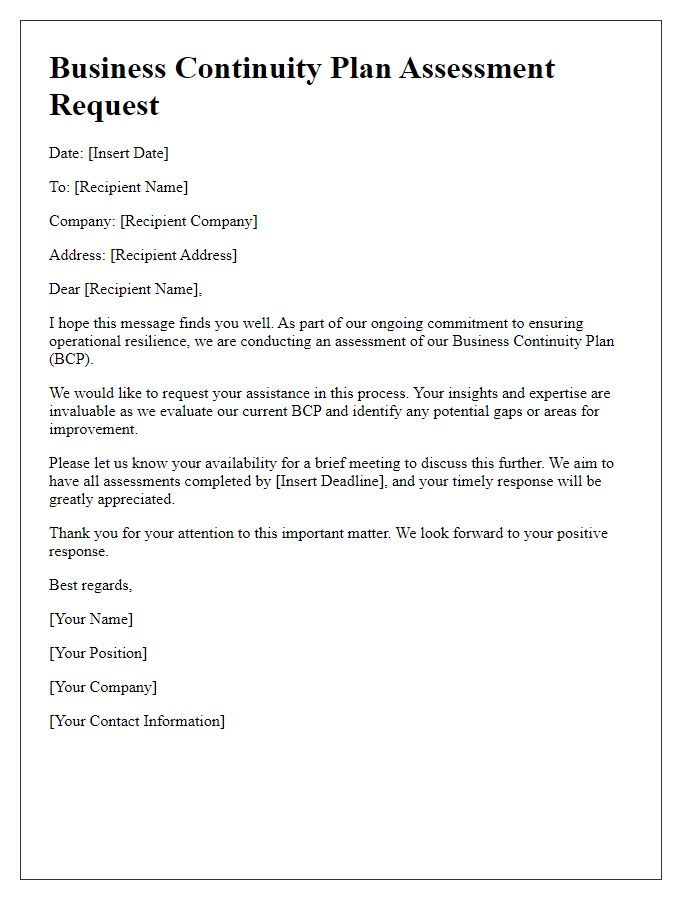
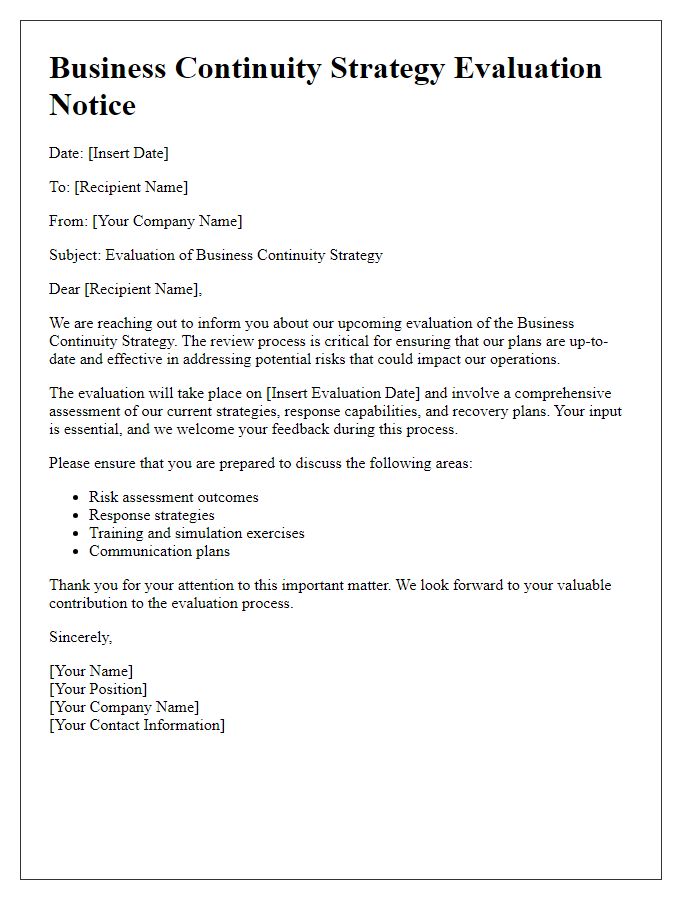
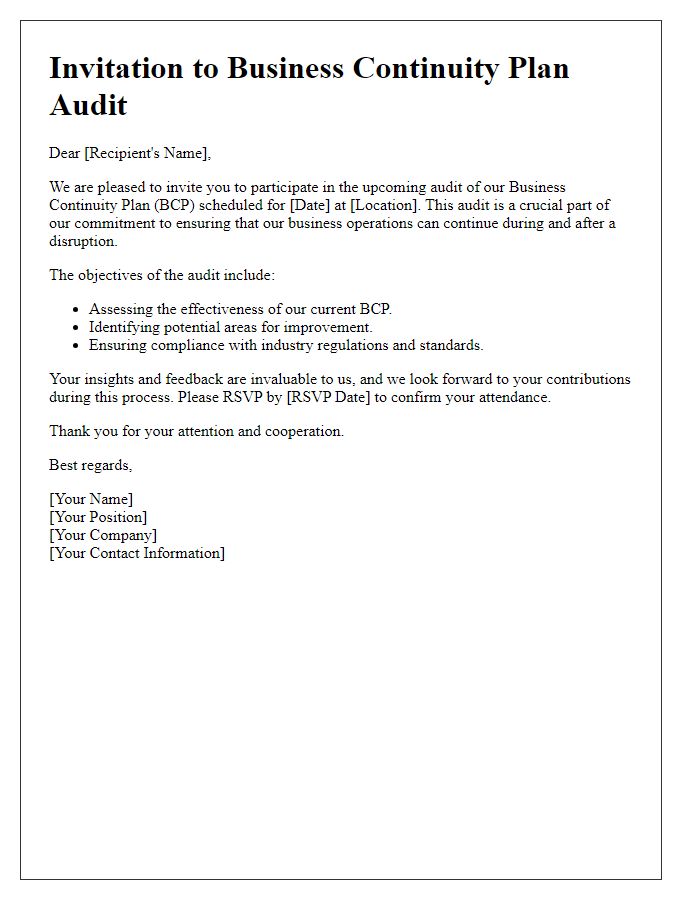
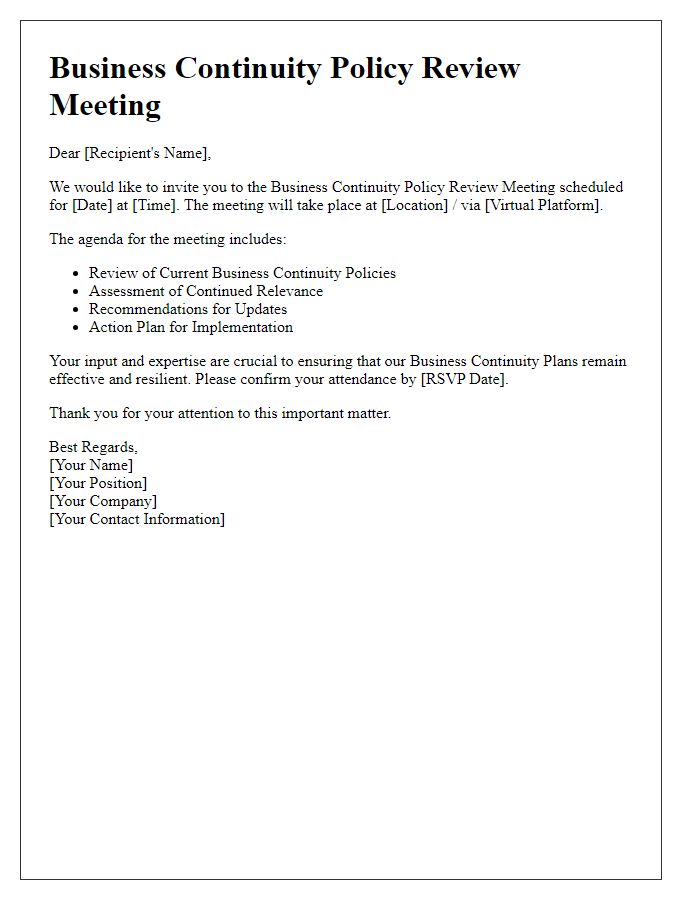
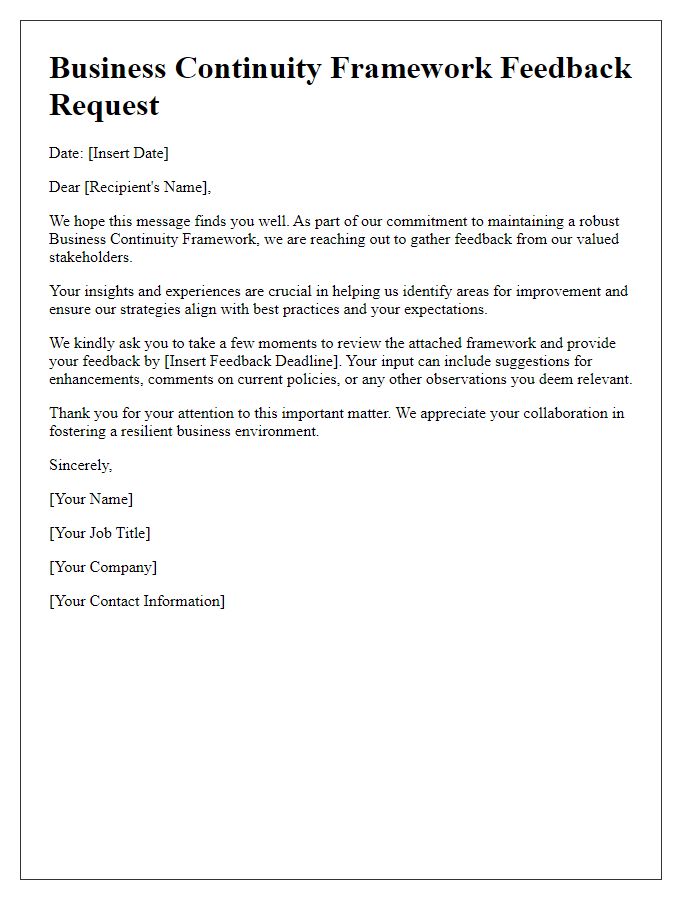
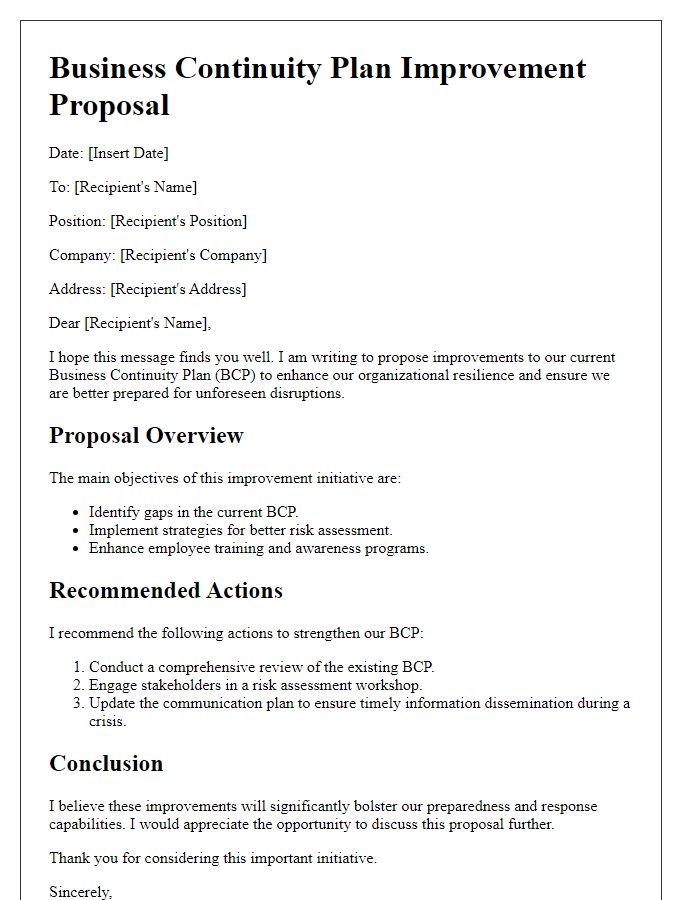
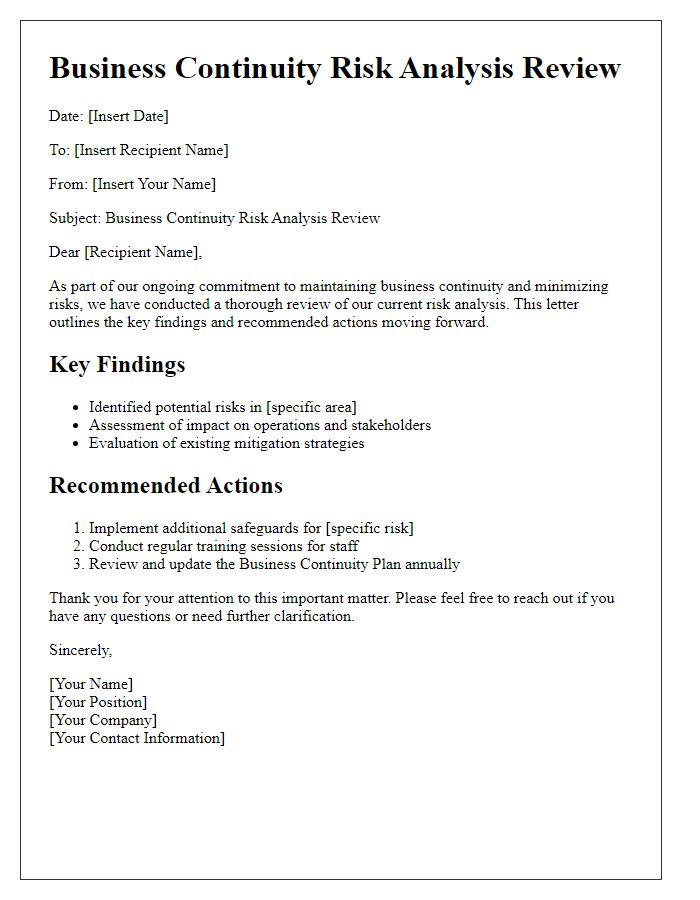
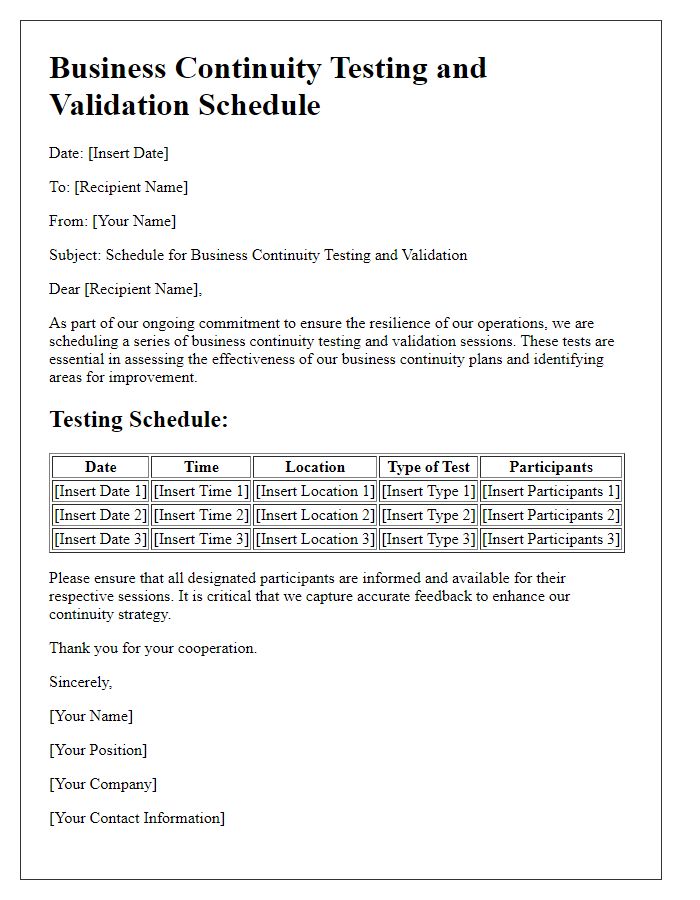
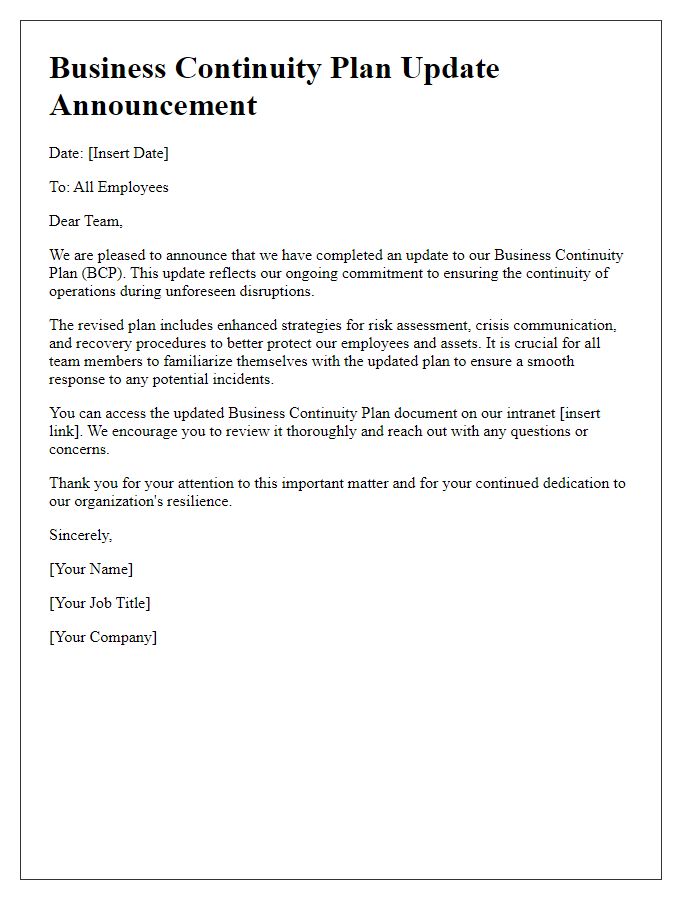
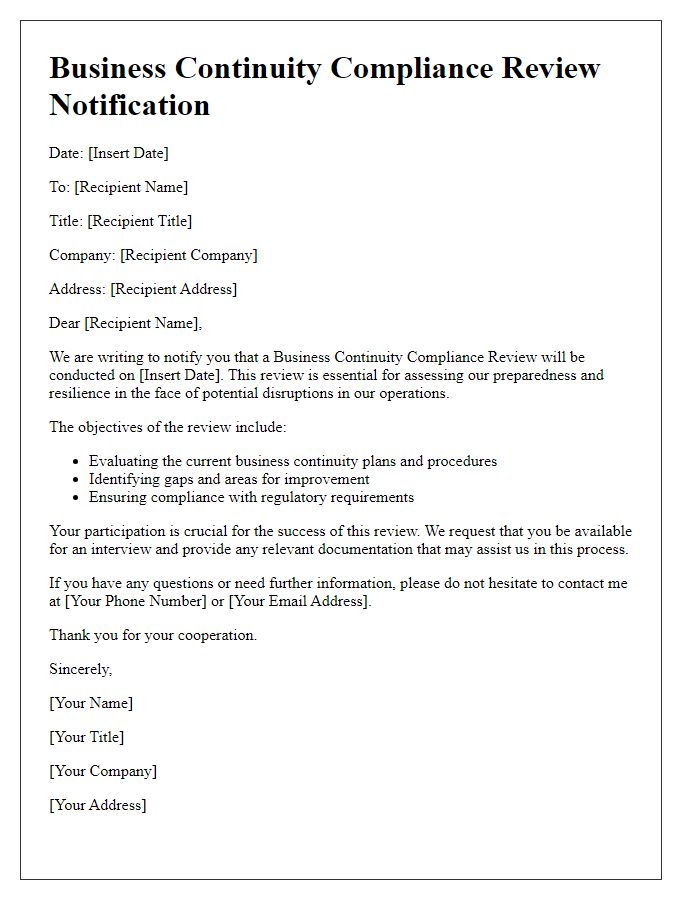


Comments